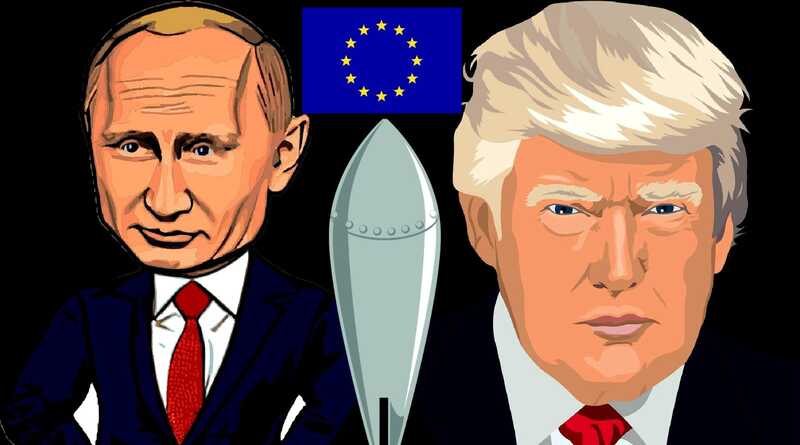
Europe’s Push For Homegrown Nuclear Deterrent Amid Trump's Alignment With Russia's President Putin
Europe
Politics
The geopolitics of Europe are witnessing a sudden shift as Donald Trump, the President of the United States, inches closer to Russian President Vladimir Putin. This shift is driven by strategic interests, including the U.S. seeking to secure access to critical minerals from Ukraine, which has led to increased economic ties with Russia. The step has resulted in European leaders rethinking their faith in the United States to safeguard them against nuclear attacks and opting for the creation of an indigenous nuclear deterrent. Since returning to the White House, Donald Trump has introduced some policies that indicate a higher degree of agreement with Vladimir Putin. His remarks about finding common ground, where he suggested that “we can work together for mutual benefits,” resonate with many who interpret this as a pivot away from traditional alliances. Trump’s inflammatory comments accusing Ukraine of being responsible for the conflict and his refusal to hold Russia accountable have shocked European leaders. A perceived change in U.S. foreign policy has created doubts about America’s reliability in upholding NATO and the mutual defense clause that has underpinned European security since the Cold War. As a reaction to these incidents, European leaders are now openly discussing the imperative of developing an indigenous nuclear deterrent. Friedrich Merz, the probable future chancellor of Germany, has talked about the need to look beyond the United States for nuclear protection. Merz has called for discussion with the United Kingdom and France, the two European nuclear powers, on nuclear sharing or at least nuclear protection from these countries. This is a significant strategic shift for Germany, which has traditionally relied on the U.S. for its nuclear defense through NATO. The concept of strategic autonomy has gained traction in Europe, where senior officials have demanded greater defense autonomy. French President Emmanuel Macron has long pushed for a “Europeanised” French nuclear deterrent, and current events have provided the idea with new traction. The possibility of nuclear sharing between the UK, France, and other European countries is being explored to ensure the continent’s security without relying on American help. The drive towards a national nuclear deterrent has significant implications for NATO and European security. Should European powers develop their nuclear weapons, this could provoke a redefining of the alliance’s defense policy. The specter of the withdrawal of American troops from Germany was threatened only recently by the U.S. Vice President JD Vance, which would once more underscore the need for Europe to enhance its defense capabilities. This move could also compel other NATO allies to re-evaluate their defense strategy and commitments. Donald Trump’s alignment with Russian President Vladimir Putin, coupled with the push for a deal regarding Ukraine's mineral resources, has made European leaders review their dependence on the United States for nuclear defense. The implications of a U.S.-Russia alliance extend beyond Europe; it could lead to shifts in global power dynamics, affecting trade routes, energy security, and international relations. Creating an indigenous nuclear deterrent is being viewed as a method to make the European continent secure and strategically independent. As Europe grapples with these complex geopolitics, the decisions of its politicians will play a crucial role in shaping the destiny of the continent’s security and defense.
27 DAYS AGO